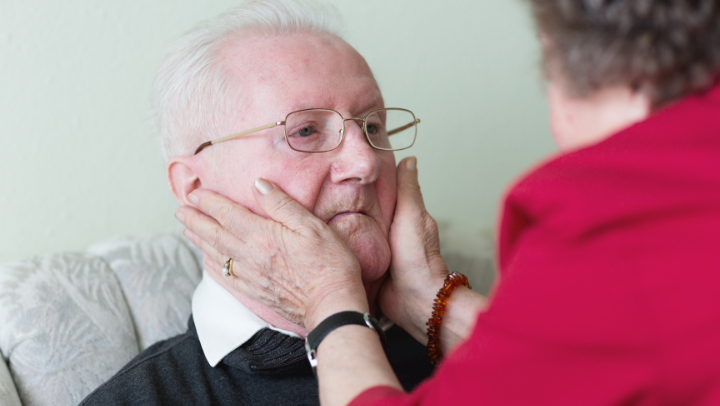Pricing & Availability: 586-838-5900

An Alzheimer’s diagnosis can feel overwhelming. Finding the right senior memory care community in Sterling Heights, MI, becomes a significant next step in your family’s experience. This transition brings emotional challenges, but specialized care communities help maintain your loved one’s dignity and independence.
Communities like My Doctors Inn have earned consistent positive feedback from families across Michigan. They customize care services to match each resident’s needs and ensure a high standard of living while providing essential support. Understanding your options for memory care will help guide you through this important decision and create a smoother transition for everyone involved.
Early Signs and Diagnosis
Subtle changes in daily behavior and cognitive abilities often signal the early stages of Alzheimer’s disease. Understanding these warning signs can help you find the right senior memory care community. This knowledge can also help you take the first step toward proper care and support.
Here are the most common warning signs to watch for:
- Daily tasks and recent events become more complex to remember
- Simple activities like managing finances turn challenging
- Speaking and communication becomes difficult
- Time and place start feeling confusing
- Poor judgment and decision-making surface
- Social activities lose their appeal
A family faces many emotional hurdles after an Alzheimer’s diagnosis. You might feel relieved to have answers yet scared about what lies ahead. Some family members react with anger or denial. These emotions need open acknowledgment. Families can better handle these complex feelings through support groups and counseling.
Places like My Doctors Inn know these emotional challenges well and help guide families through their diagnosis experience. Early detection opens doors to better planning and treatment options and memory care specialists provide the right support during this difficult time.
The Impact on Family Relationships
The trip through Alzheimer’s takes a deep toll on family relationships. Family dynamics transform as caregiving duties grow. Women take on most of the load, with two-thirds working as primary unpaid caregivers. The numbers show that more than one-third of these caregivers are daughters.
The physical and emotional burden runs deep. Half of all caregivers deal with high emotional stress and 74% worry about their own health. These changes can challenge relationships, but some families find new strengths and grow closer as they share caregiving duties.
 Maintaining connections
Maintaining connections
My Doctors Inn knows that family bonds need active work to stay strong. Caregiving stress affects both primary caregivers and extended family members. Open communication helps everyone adapt to new roles. Here’s how family health takes a hit:
- 60% of caregivers experience anxiety or depression
- One in three caregivers miss their own medical appointments
- More than one in six caregivers must leave their jobs
A strong support network becomes vital as roles change. Extended family members often need help staying connected; professional care teams can strengthen these crucial relationships.
Making the Care Decision
As Alzheimer’s progresses, it is time to consider professional care. Your search for the right senior memory care community in Sterling Heights, MI, depends on several factors that affect your loved one and family.
Your loved one’s health often points to the need for professional care. You might notice them having trouble with daily tasks or getting confused more often.
Family conversations about care
We need all family members to take part in these discussions to build a unified approach to care decisions. A family meeting lets everyone speak up about their concerns and share what they can do to help.
Healthcare providers can help confirm your decisions along the way. Their guidance helps tackle common challenges. Your loved one’s doctor can explain what kind of care they need and when they need it.
Note that each family faces different challenges. Some families need to place their loved ones right away, while others can take their time. My Doctors Inn knows these different needs and helps families create individual-specific care plans that match both the person’s and family’s priorities.
Managing emotions
The adjustment period usually takes several weeks or months. Both families and residents feel different emotions – guilt, anxiety and sometimes relief. You should have open conversations about concerns and expectations before the move. Family members who visit often provide emotional support and help keep important connections strong.
Patience is a vital part of this journey. Your loved one will adjust better when you work with care providers and keep familiar routines. Professional care teams know these challenges well and will guide you through the transition.
When home care is no longer enough
An Alzheimer’s diagnosis brings significant changes to families. This trip has its challenges, but professional memory care communities provide specialized support. These communities help maintain your loved one’s dignity while delivering essential care services.
The caring professionals understand your concerns and provide customized guidance about memory care options. You can reach them at (586) 838-5900.
The right memory care community strengthens your loved one’s well-being and your family’s peace of mind. Each small step forward makes a difference. With proper support, families find comfort in knowing their loved ones receive specialized care that matches their unique needs.




